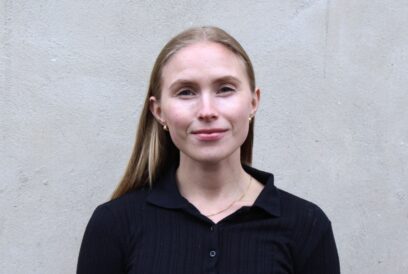

Digital and financial literacy are widely accepted as fundamental skills for everybody. Why not add economic literacy to that list? The text is a column written for issue 3/2020 on Adult Education and Numeracy & Finance.
The economy matters. It’s woven into the fabric of all our lives: our jobs, our homes, our money, our government’s policies. So it is inexcusable that, according to survey from 2016, only 12 percent of the British public feel that politicians and the media speak about it in a way that is accessible and easy to understand.
We urgently need a new way of talking about the economy that allows everyone to join in on the conversation.
Healthy and vibrant democracies are built on constructive discussions about the best way to structure our society. Economics lies at the heart of some of the most important decisions we make, from how much tax we pay to what public services we offer to how we handle pandemics.
At the moment, too many people are shut out from these debates: in 2017 only about a third of the British electorate said they had enough information about the economy to make an informed voting choice.
Worse, disconnection from the economy seems to be particularly concentrated in social groups who are economically disadvantaged in other ways. These include women, young people and people from lower socio-economic backgrounds. A lack of understandable economics therefore widens existing inequalities.
SO, HOW DO WE MAKE ECONOMICS more understandable and accessible?
The first thing to do is to change the language we use when talking about the economy, especially in the classroom, on the news and in politics.
Research we’ve conducted at Economy shows that people want economic communication that is clear, relevant, transparent, positive, available and human. That means ditching – or at least defining – jargon, and putting numbers such as government spending in context. It also means emphasizing the individual stories behind the statistics and focusing on the everyday parts of the economy; talking about supermarkets as much as stock markets.
A criticism we sometimes hear is that this is ‘dumbing down’ economics, and trying to oversimplify a complex subject that is best left to the experts.
We at Economy disagree. Our education system is built around the principle that a reasonable level of understanding in various disciplines is both achievable and desirable for our population as a whole.
THERE IS WIDESPREAD AGREEMENT that things such as digital and financial literacy are fundamental skills for everybody despite the fact that few will become investment bankers or coders. Adding economic literacy to that list will not erase the expertise of specialists, but it could add to it.
At present, 6 in ten Britons say they’ve had zero economic education throughout their lives. We could flip this statistic by providing free or low-cost economic learning courses for adults, particularly those furthest from power. Having spent a couple of years trialling such courses using the accessible approach to economics outlined above, we know that they can create both a space for learning and a jumping off point for wider discussions about the economy and how it relates to participants’ everyday lives.
Ultimately, it is only by changing how we talk about the economy and what we talk about when we talk about the economy that we will be able to broaden who talks about the economy.
Author







